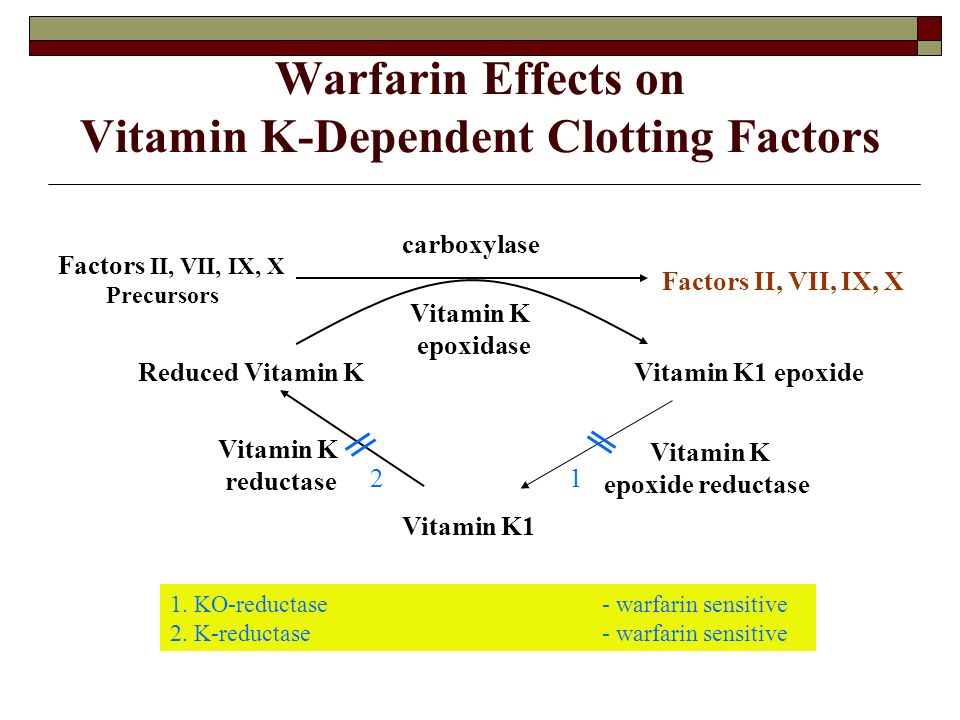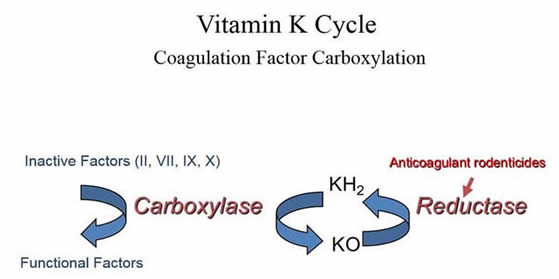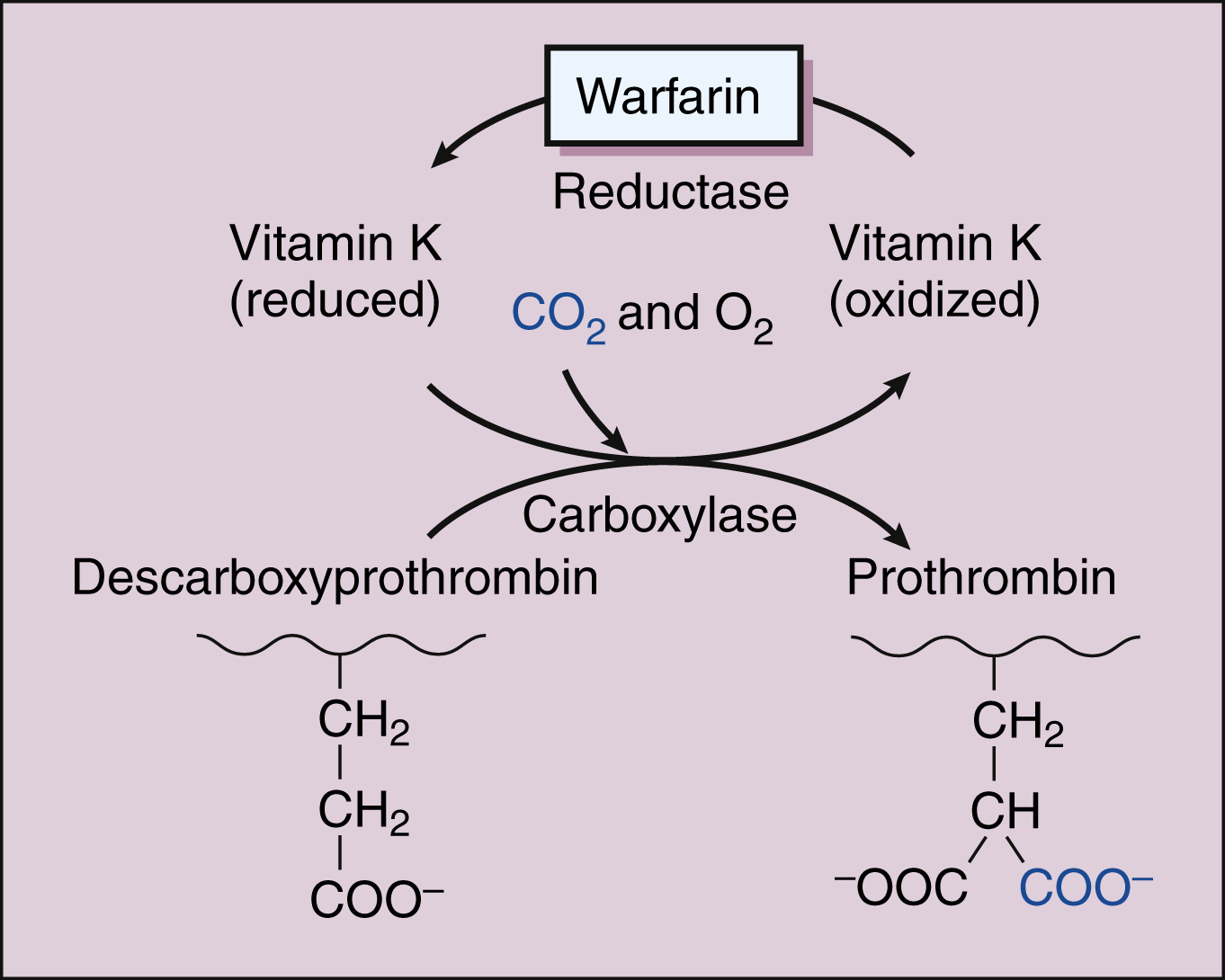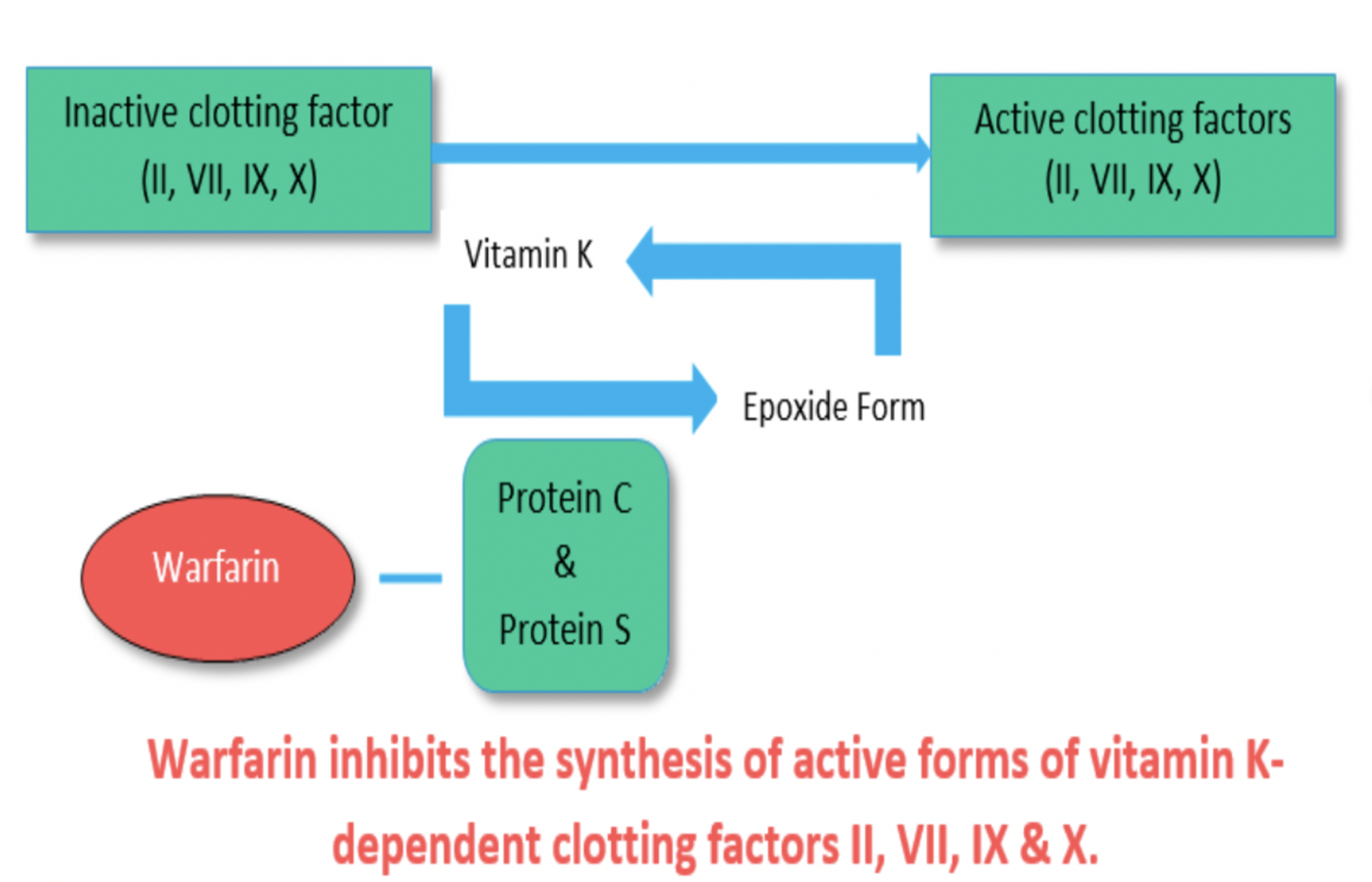Vitamin K Dependent Coagulation Factors

Defects in carboxylation are mainly associated with bleeding disorders.
Vitamin k dependent coagulation factors. Familial multiple coagulation factor deficiency is rare. Vitamin k is important in the steps involving protein factor ii vii ix and x 1. Vitamin k dependent carboxylation is a posttranslational modification essential for the biological function of coagulation factors. Warfarin 4 hydroxycoumarin inhibits the synthesis of vitamin k dependent coagulation factors including factors ii vii ix and x as well as proteins c and s.
The vitamin k dependent coagulation factors are factors ii vii ix x proteins c and s. A newer class of drugs the direct thrombin inhibitors is under development. 4 6 too much vitamin k can overcome warfarin s anticoagulant effects which can lead to potentially deadly clots. Occurrence of vitamin k deficiency bleeding in the first week of the infant s life is estimated at 0 25 1 7 with a prevalence of 2 10 cases per 100 000 births.
Some members are already in clinical use such as lepirudin. Without enough vitamin k not enough vitamin k dependent coagulation proteins are carboxylated. Also anticoagulation proteins c s and z as well as osteocalcin and the matrix gla protein depend on vitamin k. Factor ii is alternatively named prothrombin.
Inherited combined deficiency of the vitamin k dependent clotting factors vkcfd is a very rare inherited bleeding disorder that is caused by a problem with clotting factors ii vii ix and x. Acquired forms of the disorder can be caused by intestinal malabsorption of vitamin k. In turn this inhibits the coagulation cascade and blocks clot formation. It is commonly used for prevention and treatment of vte prevention of stroke in atrial fibrillation anticoagulation for mechanical prosthetic heart valves and myocardial infarction prevention in coronary artery disease.
Four other proteins. 127 129 these rare autosomal recessive disorders have an estimated incidence of 1. Warfarin affects the vitamin k dependent clotting factors ii vii ix x and protein c and protein s whereas heparin and related compounds increase the action of antithrombin on thrombin and factor xa. Deficiency of all vitamin k dependent clotting factors leads to a bleeding tendency that is usually reversed by oral administration of vitamin k.
The blood clotting factors of newborn babies are roughly 30 60 that of adult values. This appears to be a consequence of poor transfer of the vitamin across the placenta and thus low fetal plasma vitamin k. Prothrombin alone needs vitamin k to modify 10 different regions within the protein for functionality. Combined deficiency of the vitamin k dependent factors may result from missense mutations in the genes for vitamin k reductase vkorc 1 or gamma glutamyl carboxylase.


















